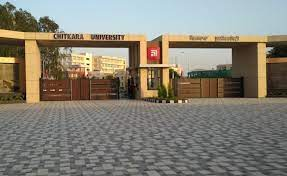New Delhi: In an era of Industry 4.0, defined by technological advancements and global connectivity, prioritising global education for students has become more crucial than ever.
With the National Education Policy significantly emphasising experiential learning and a global learning experience, prominent educational institutions are embracing strategic measures to enable this transformation.
In a similar move towards enhancing global educational opportunities, Chitkara University has announced the establishment of the Chitkara International College (CIC) in association with Arizona State University (ASU).
This initiative aims to enhance global educational opportunities for students as ASU is renowned for its innovative approach to education and is considered as one of the most advanced universities in the US.
This partnership is a significant milestone for Chitkara University as it is the first university in Punjab to collaborate with Arizona State University for an innovative educational model. As part of the initiative, Chitkara International College will offer ASU degree programmes to Punjab students for the first two years, facilitating their transition to ASU for the final two years.
According to the official press statement of the announcement, the number of Indian students enrolled in foreign universities has grown significantly over the years. In 2021, 440,000 Indian students were studying abroad. However, this number has increased to 750,000 in 2022.
As a result, India has become one of the top two sources of international students around the globe. Furthermore, it is estimated that the number of Indian students studying abroad will reach 1.3 million in the coming years, with the US being their preferred destination.
According to the Professor of Practice School of Public Affairs (SPA) at ASU, Rick Shangraw, “We are introducing a computer science programme with Chitkara University, and we plan to unveil more programmes in business, global management, and other engineering domains. These programs are essential to the Fourth Industrial Revolution.’”
“In order to transfer to Arizona State University from Chitkara, students must meet a minimum high school GPA requirement. The estimated cost for the final two years at ASU will be around $30,000 per year and an annual hostel fee of $6,000,” Shangraw added.
On the other hand, during the first two years at Chitkara University, students will have to shell out Rs five lakh per annum, according to Madhu Chitkara, Pro-Chancellor, Chitkara University, Punjab and Himachal Pradesh Chairperson, Chitkara International School, Chandigarh and Panchkula, General Secretary, Chitkara Educational Trust.
Upon graduation, graduates of this STEM programme will also be eligible for a three-year OPT work opportunity, which will give them valuable international experience and boost their careers.
In addition, students will have access to unique international exchange programmes and global learning opportunities at ASU and other universities worldwide via Chitkara University’s membership in the ASU-Cintana Alliance.
With digital transformation and the fourth industrial revolution making inroads into our daily lives, such programmes will go a long way in future-proofing students for emerging opportunities and challenges. As the number of Indian students studying abroad continues to rise, initiatives like this will play a crucial role in delivering students with a world-class education and practical international experience.
–IANS


Comments are closed.